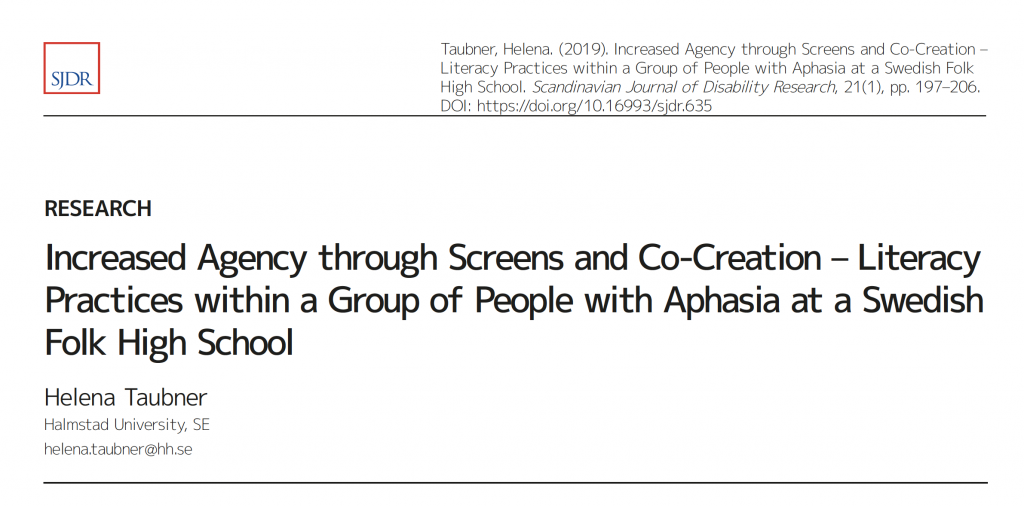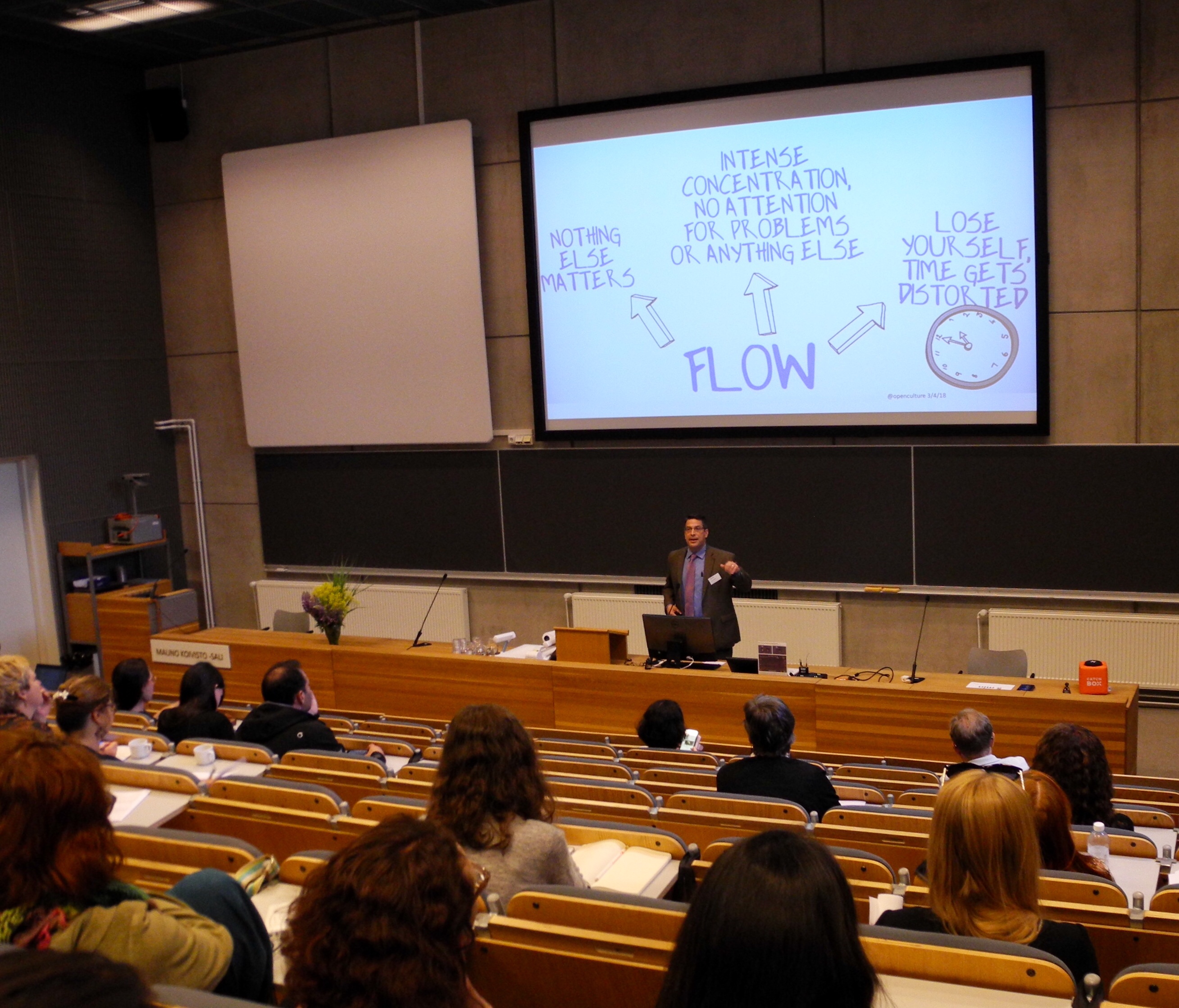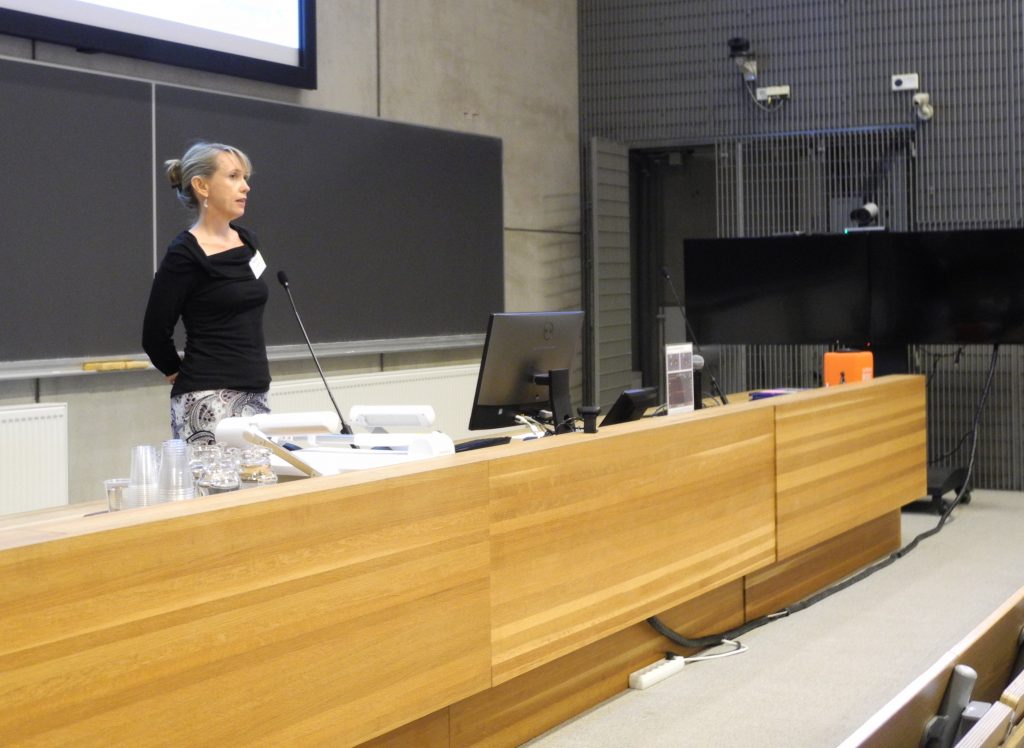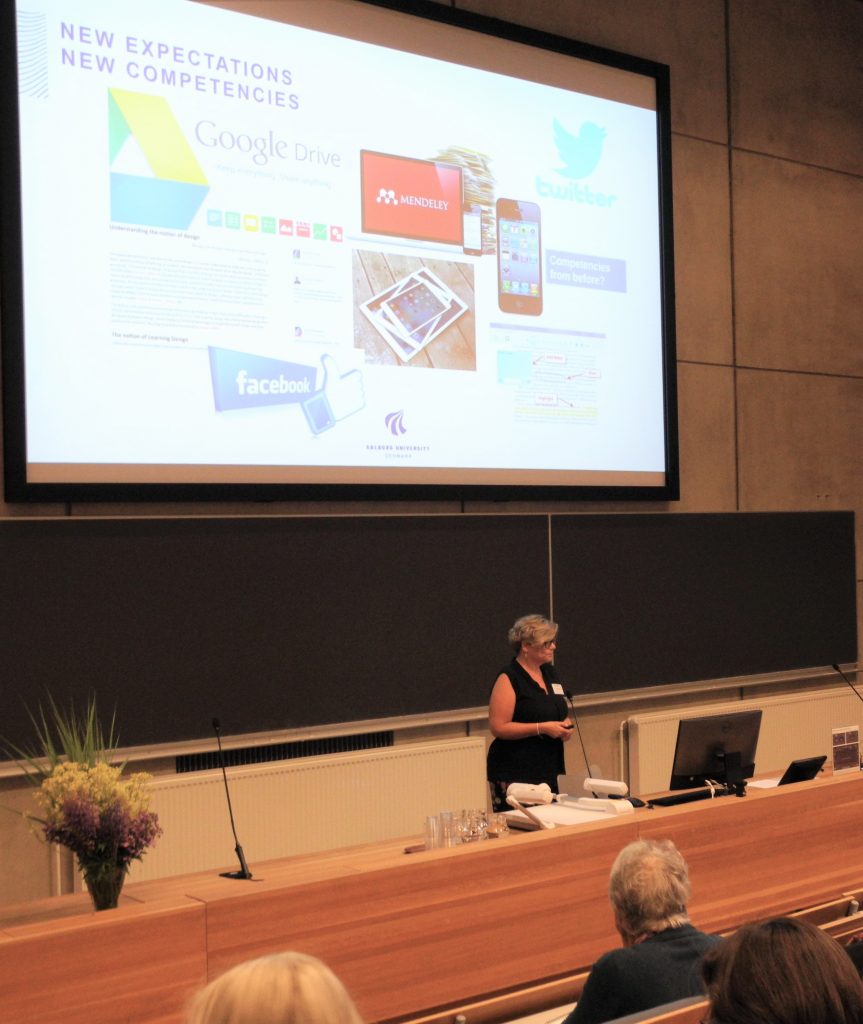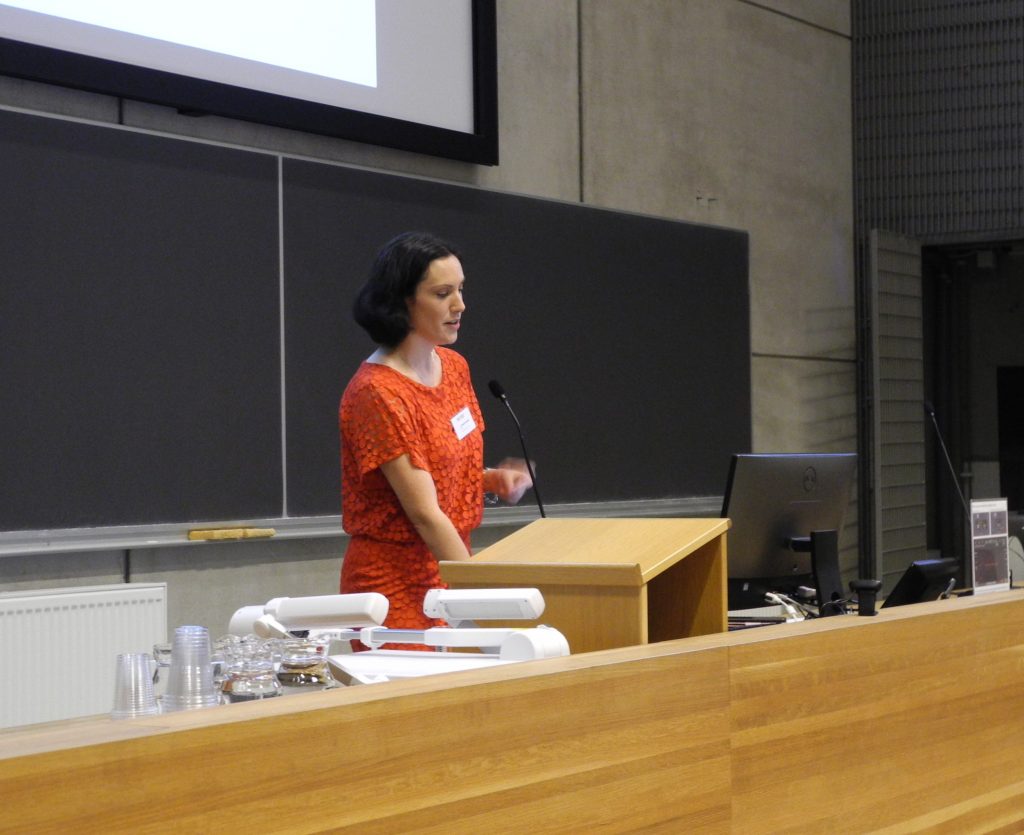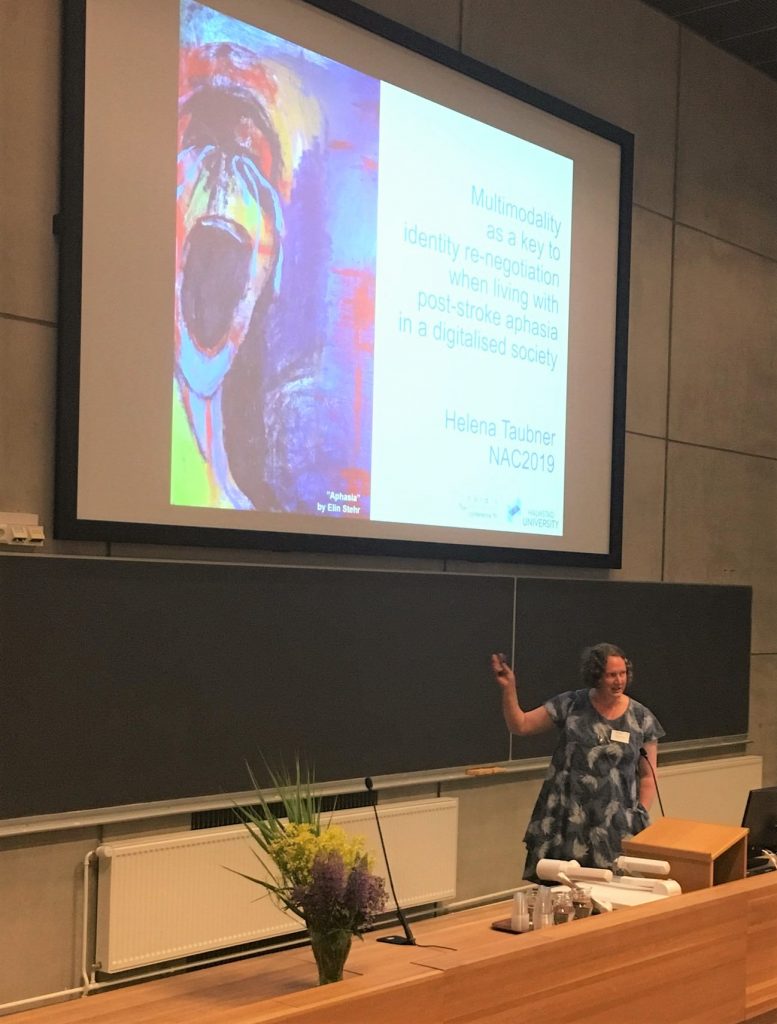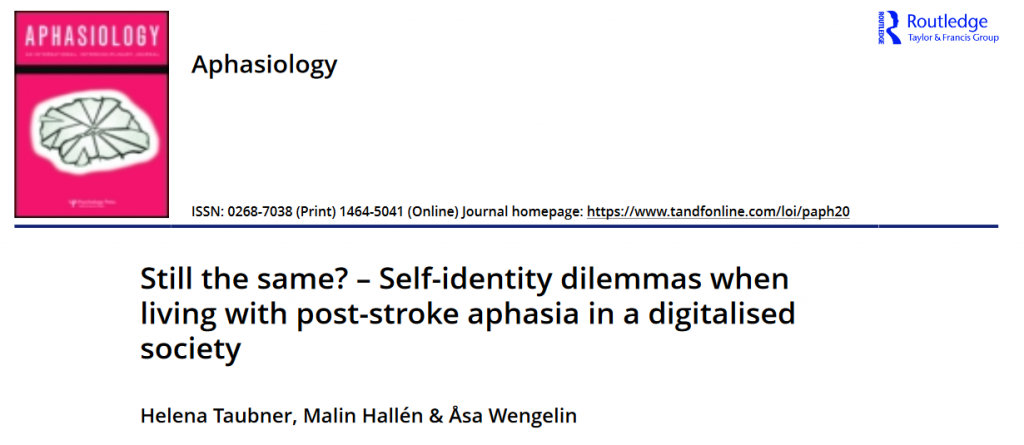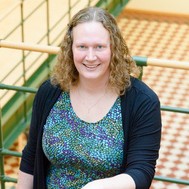I am excited to be attending the Nordic Aphasia Conference 2019! This year, the conference is hosted by the University of Turku, Finland. (Last time the NAC was in Copenhagen, remember?)
Interesting presentations, inspiring conversations, new ideas and lots of nice people!
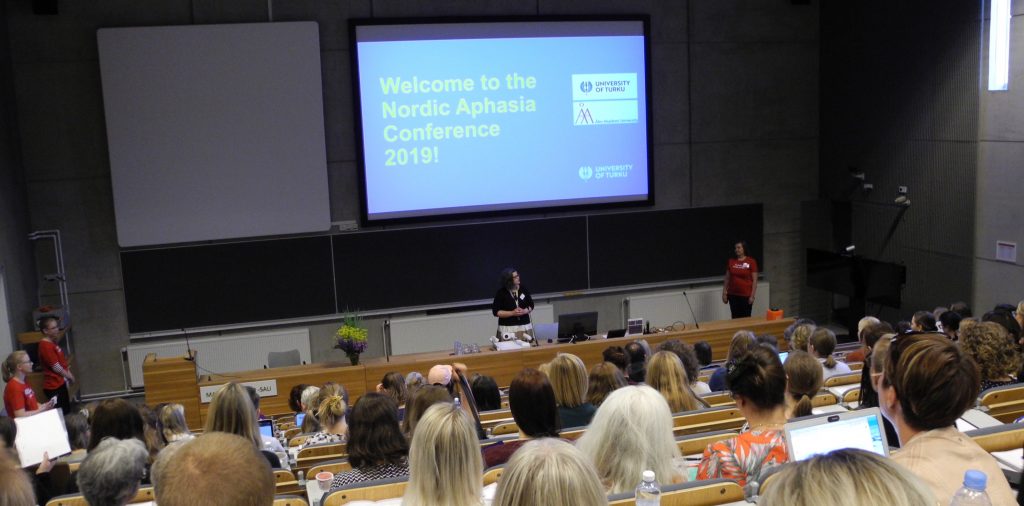
Kati Renvall opening the Nordic Aphasia Conference 2019 in Turku
I especially enjoyed catching up with professor Madeleine Cruice from City, University of London during the poster session. Her work has been so inspiring to me, and I really like meeting her at conferences like this one.
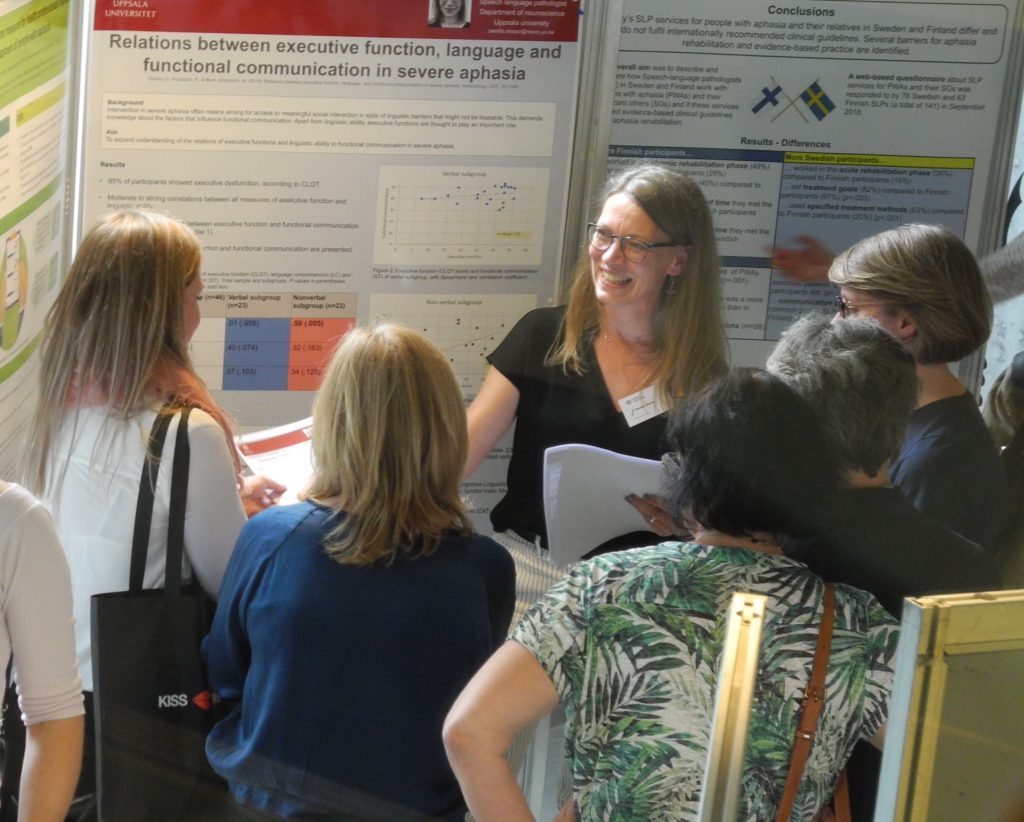
Camilla Olsson from Uppsala University presenting a poster
Among the oral presentations, I was most inspired by Becky Moss and Abi Roper, both from City, University of London. They are both interested in writing processes of people with aphasia (which is not very common), and since that’s very close to my own project it really inspires me. I am definitly going to stay posted about their projects.
Becky Moss presented findings from a study about facilitating writing through voice recognition software, and there were some truly heart warming stories within her material. Being able to write (again) is not merely a question of putting letters together, but more importantly about keeping a story of self going and maintaining relationships.
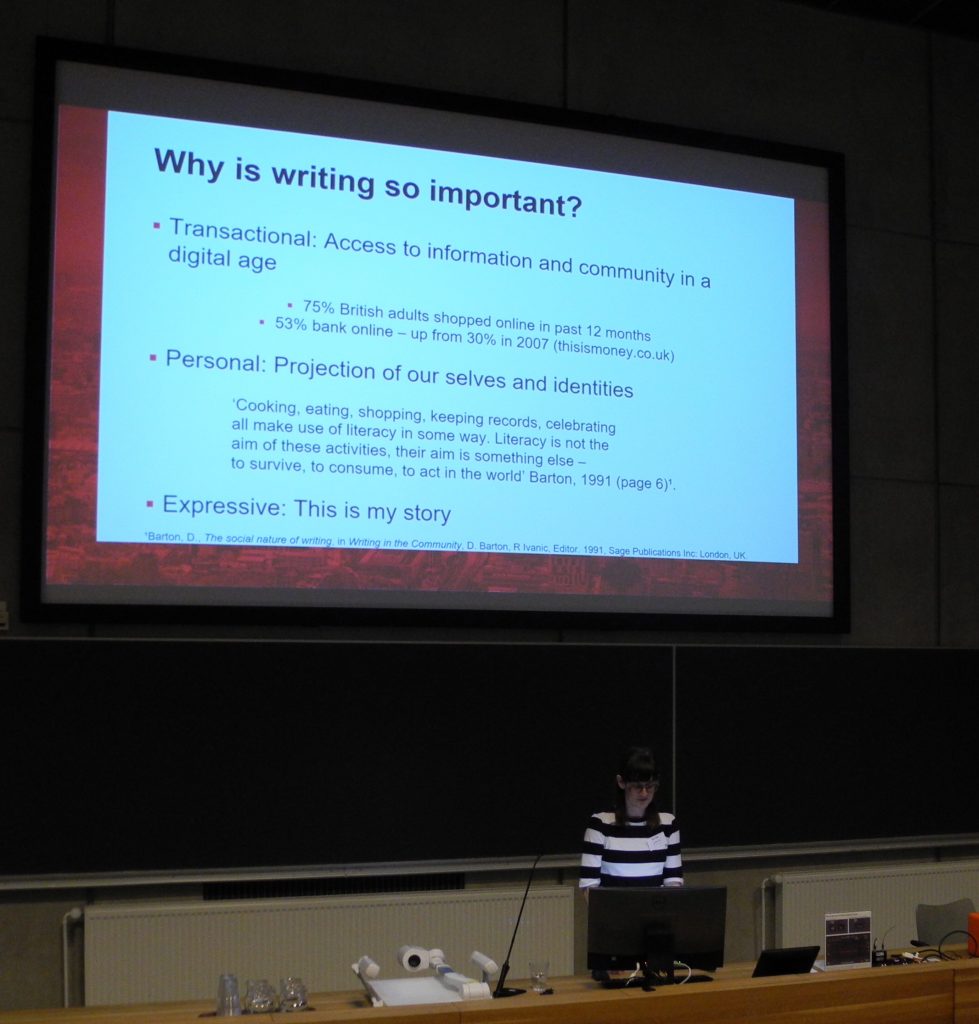
Becky Moss (City, University of London) talking about writing and aphasia
Abi Roper (and a group of others, including people with aphasia) is working on a project about helping people with aphasia expressing themselves online (the INCA project). Part of the project is developing an app for ”Blackout poetry”. The app, called MakeWrite, is meant to stimulate writing in a fun and poetric way, and it is free to download. I can’t wait to try it!
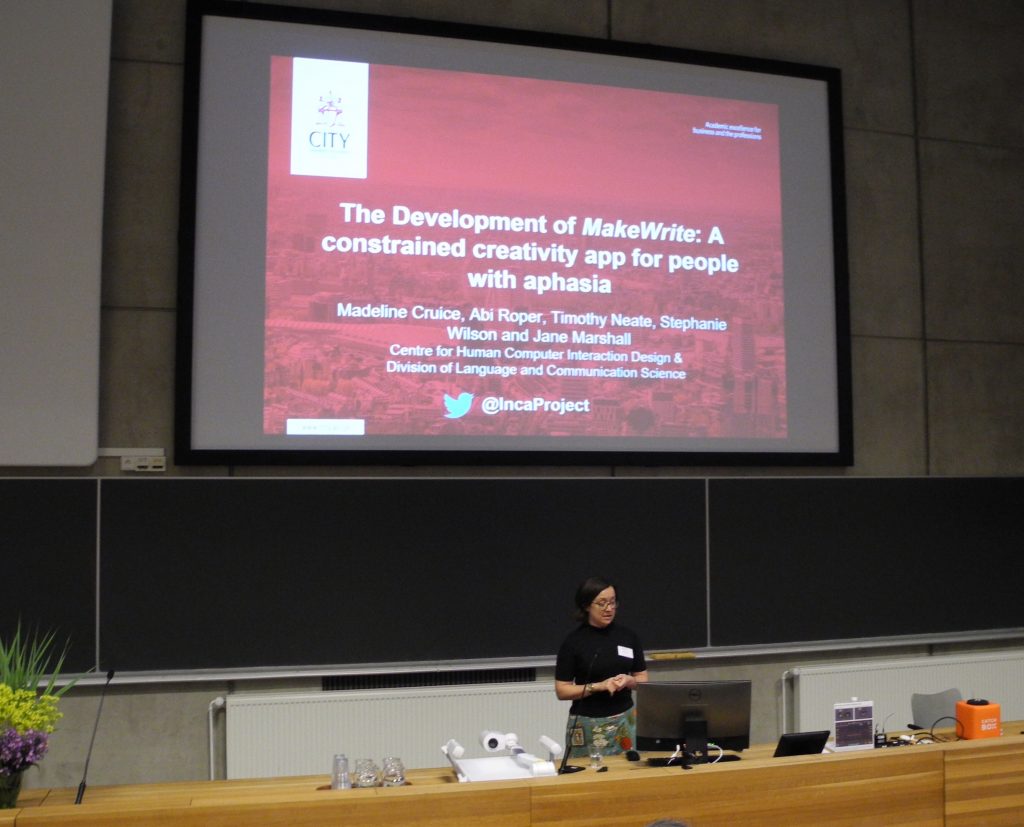
Abi Roper giving a presentation about the INCA project and the MakeWrite app
The welcome reception starts in a short while, so the conversations will continue there!



